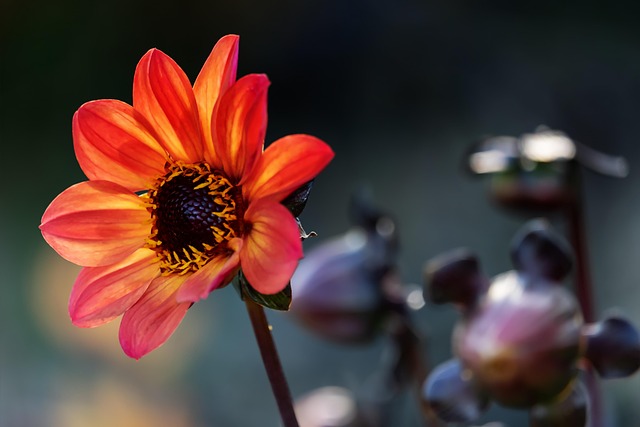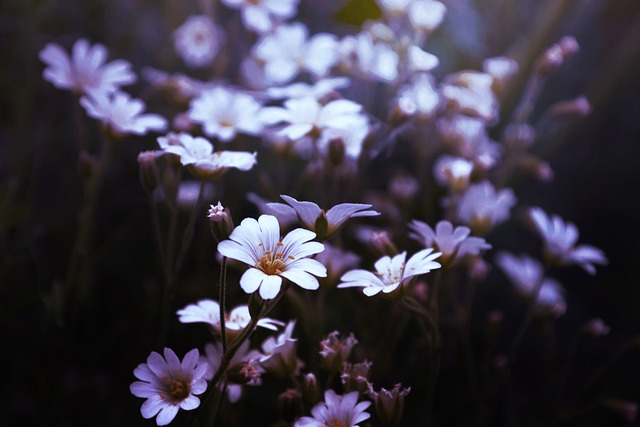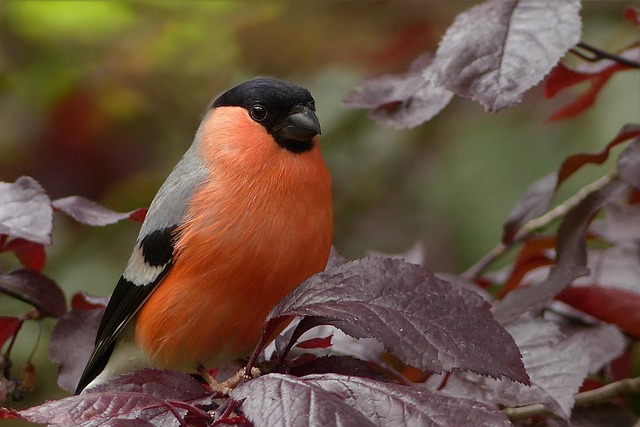Adopting perennial flowers for your garden offers an eco-friendly, low-maintenance solution with minimal pest resistance. These long-lasting plants, like lavender, rosemary, and certain roses, naturally deter insects and diseases due to their robust root systems and chemical defenses. By incorporating these varieties, gardeners can create vibrant landscapes, reduce chemical interventions, and foster healthier ecosystems while enjoying the benefits of easy care.
“Uncover the secrets to a thriving, low-maintenance garden with pest-resistant plants. In today’s world, where chemical interventions can be harmful, embracing natural solutions is key. This article guides you through the process of selecting plants that not only thrive but also deter pests. Discover the advantages of perennial flowers, their remarkable resilience, and how they contribute to an eco-friendly garden. Learn to identify high-resistance varieties and master the art of planting and maintaining a vibrant, pest-free oasis with minimal effort.”
- Understanding Pest Resistance in Plants
- Benefits of Choosing Perennial Flowers
- Identifying High-Resistance Varieties
- Planting and Maintaining Your Pest-Free Garden
Understanding Pest Resistance in Plants

Understanding pest resistance in plants is key to achieving a thriving garden with minimal interventions. Pest-resistant plants are those that possess natural defenses, making them less susceptible to attacks from insects, diseases, and other pests. These defenses can come in various forms, such as tough leaves, aromatic compounds that repel pests, or even microscopic structures that inhibit the growth of pathogens.
One excellent way to enhance your garden’s resilience is by incorporating perennial flowers for easy care. Perennials are plants that live for more than two years, and many varieties offer natural pest resistance. This characteristic not only reduces the need for chemical interventions but also promotes a healthier ecosystem in your garden. By choosing pest-resistant perennials like lavender, rosemary, and certain varieties of roses, you can create a vibrant and low-maintenance outdoor space.
Benefits of Choosing Perennial Flowers

Choosing perennial flowers as part of your garden landscape offers numerous benefits, especially when it comes to reducing pest interventions. Perennial plants are known for their longevity, returning year after year with vibrant blooms and lush foliage. This low-maintenance aspect is a gardener’s dream, as it saves time and effort in the long run. With regular watering and occasional care, these flowers thrive and require less frequent replacement, unlike annuals that need to be replanted each season.
One of the most significant advantages is their natural pest resistance. Many perennial varieties have developed mechanisms to deter common garden pests over time. Their robust and diverse root systems and dense foliage can make it harder for insects and diseases to gain a foothold, reducing the need for chemical interventions. Additionally, these flowers often attract beneficial insects like bees and butterflies, contributing to a healthier ecosystem within your garden.
Identifying High-Resistance Varieties

When considering pest-resistant plants, identifying varieties with high natural resistance is a strategic step towards reducing chemical interventions. Many gardeners turn to perennial flowers for easy care due to their robust health and ability to thrive with minimal maintenance. These plants have evolved mechanisms to fend off common pests, making them ideal choices for sustainable gardening practices.
High-resistance varieties often exhibit strong physical barriers like waxy leaves or thick stems that deter insects and prevent disease. Some plants also produce natural chemicals that repel pests or confuse their sense of smell, effectively keeping them at bay. By selecting these resilient species, gardeners can create healthier ecosystems while enjoying vibrant landscapes with minimal effort.
Planting and Maintaining Your Pest-Free Garden

Planting a garden that’s resistant to pests is an excellent way to reduce interventions with chemicals and maintain a healthier ecosystem. When selecting plants, consider perennials – known for their ease of care – that naturally deter common garden pests. Lavender, marigolds, and lemongrass are popular choices due to their strong aromas, which repel insects like aphids and mosquitoes. Rosemary and thyme also possess natural pest-fighting properties and can enhance your garden’s aroma with their fragrant blooms.
Maintaining your pest-free garden involves regular weeding to remove potential hiding spots for pests and fostering a balanced ecosystem by encouraging beneficial insects like ladybugs and butterflies. Additionally, mulching around plants helps suppress weeds, conserves soil moisture, and provides insulation in extreme weather conditions. Regular monitoring will help you identify any issues early on, allowing for swift action using integrated pest management techniques that combine biological, cultural, and chemical methods.
By selecting pest-resistant plants, particularly perennial flowers known for their ease of care, you can significantly reduce interventions like spraying. This natural approach not only saves time and effort but also promotes a healthier ecosystem. With the right varieties chosen from high-resistance options, you’ll enjoy a vibrant, low-maintenance garden that requires less upkeep and fewer chemical treatments. Embrace the benefits of pest-resistant perennials for a more sustainable and aesthetically pleasing outdoor space.
